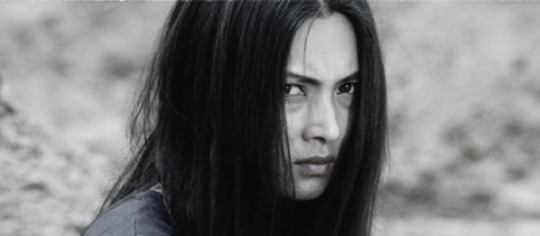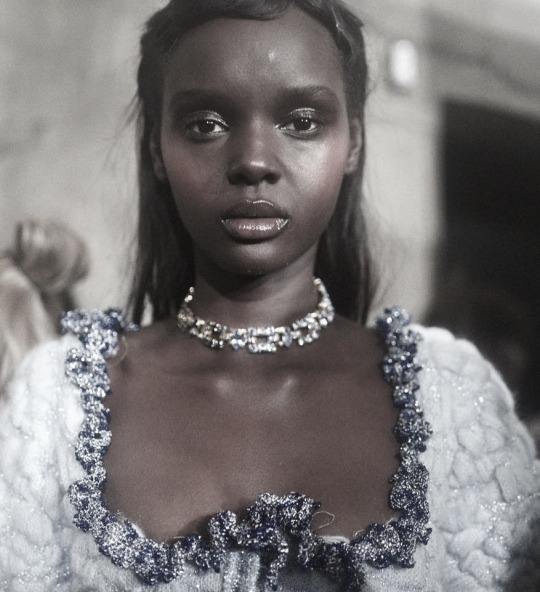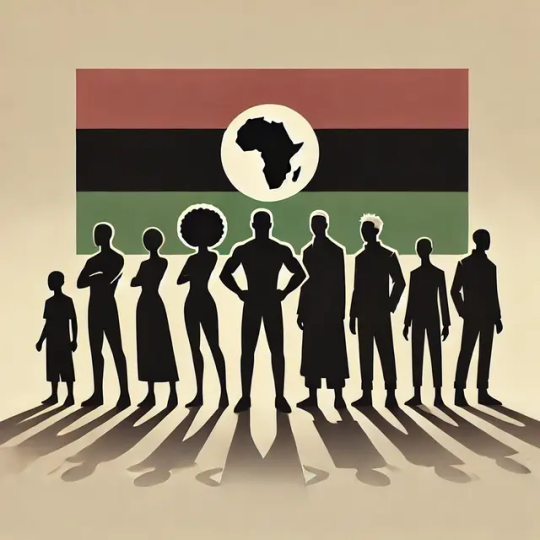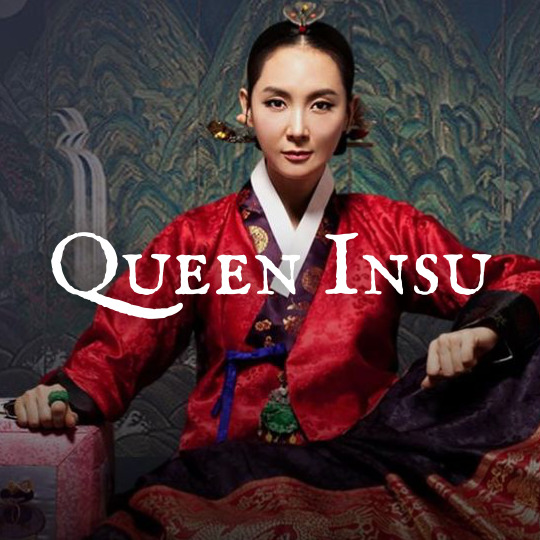#Empowering women in governance
Explore tagged Tumblr posts
Text
It’s Time To Rethink the Role of First Lady | Irina Karamanos Adrian | #TEDTalks
Source: TedTalks, Atlanta, Georgia, October 2023 In 2021, Gabriel Boric became the elected President of Chile. He was one of the youngest worldwide and one of the most voted in the country’s history. He was supported by a political party called Convergencia Social. And by the time of the election, I was in charge of the feminist front of that party. So even though I was very confident our…

View On WordPress
#Chile#empowering women#feminine#feminism#First Lady#government#heteronormative#Irina Karamanos Adrian#masculine#Minister of Education#Ministry for Women and Equality#politics#Power#President#public service#subversion#TED#TEDTalk#traditional#women&039;s rights
0 notes
Text
“Empowering Women and Changing Lives: Hamari Pahchan NGO — The Best NGO in Delhi and India” -by kanika
Hamari Pahchan NGO is a remarkable non-governmental organization (NGO) that has been making a significant impact in Delhi and across India since its founding in the wake of the Nirbhaya incident. This organization is committed to the empowerment of women and has launched a variety of initiatives to achieve this goal.
The founder of Hamari Pahchan NGO, Tarun Mathur, has a special story. He used to work in the government’s aviation sector and even played chess internationally. But now, he, along with his whole family, dedicates their lives to helping others.
He strongly believes in empowering women, following the motto “beti baccho beti padhao, beti bachegi tabhi toh padhegi,” which means that when we educate and support girls, they thrive. Tarun Mathur also cares deeply for children. He’s helping hungry kids, “Pohoch gyae hai Chandryaan par, fir bhi dhund rhae hai bacchae bhukae khana kudaedaan par”. He knows that being a good man means treating women with respect and providing them with what they need, specially sanitary pads. Tarun Mathur’s dedication is inspiring.
Hamari pahchan works for women empowerment
One of the key areas of focus for Hamari Pahchan NGO is women’s empowerment. They recognize that providing women with the tools and resources they need to thrive is essential for building a more inclusive and just society. To that end, the NGO has implemented several initiatives aimed at empowering women.
One critical initiative is the distribution of sanitary pads. Access to hygiene products like sanitary pads is a fundamental right, and Hamari Pahchan NGO ensures that women have the means to manage their menstrual health with dignity. This is a crucial step in breaking down stigmas and promoting women’s overall well-being. This is the reason Hamari pahchan is the best NGO in delhi and infact in India.
Education and legal aid
Education is another cornerstone of their work. Hamari Pahchan NGO understands that education is a powerful tool for personal growth and empowerment. They are dedicated to providing educational opportunities for women, ensuring that they have the knowledge and skills to pursue their dreams and improve their lives. Hamari pahchan NGO is the most influential NGO in Delhi.
Legal aid is yet another aspect of their work. They help women navigate the legal system, ensuring that their rights are protected and they receive the support they need in cases of abuse or discrimination.
But Hamari Pahchan NGO doesn’t stop at education and legal aid. They also empower women through imparting entrepreneurial skills. By teaching women how to start and run businesses, they pave the way for financial independence. This is a significant step towards self-reliance and a brighter future for these women. This is “The Best NGO” of India
The organization’s mission doesn’t end with empowering women alone. They also work tirelessly to make public spaces safer for women. This is crucial in a world where safety concerns often restrict women’s freedom of movement. By advocating for safer public spaces, Hamari Pahchan NGO is making a lasting impact on the lives of women.
Hamari pahchan ranks best in Delhi
What sets Hamari Pahchan NGO apart and has earned it a reputation as one of the best NGOs in Delhi and India is its all-encompassing approach to social issues. They work diligently to help underprivileged sections of society, running donation drives and charity initiatives to provide essential resources to those in need. Their selfless dedication to reaching out to people in need has touched the lives of countless individuals.
My name is Kanika, and I’m currently interning with Hamari Pahchan NGO. It’s not just the best NGO in Delhi but also in all of India. I highly recommend this NGO to anyone looking for an internship or wanting to make a difference in the NGO sector.
Hamari Pahchan NGO works on various important causes and has a proven track record of reducing the number of underprivileged people in South Delhi. That’s why it’s considered one of the best NGOs, not just in India, but around the world. So, if you want to do good and help others, this is the place to be!
In a world where NGOs play a vital role in addressing social challenges, Hamari Pahchan NGO stands out as an exemplar of what can be achieved through dedicated and holistic efforts. Their commitment to women’s empowerment, education, legal support, entrepreneurial skills, and public safety is nothing short of commendable. As they continue to make a positive impact on society, they serve as an inspiration for others to join the mission of creating a better, more equitable world for all. Hamari Pahchan NGO is not just the best NGO in Delhi; it is an organization that is making a difference and changing lives across India.”
1 note
·
View note
Text
"Empowering Women and Changing Lives: Hamari Pahchan NGO - The Best NGO in Delhi and India"
Hamari Pahchan NGO is a remarkable non-governmental organization (NGO) that has been making a significant impact in Delhi and across India since its founding in the wake of the Nirbhaya incident. This organization is committed to the empowerment of women and has launched a variety of initiatives to achieve this goal.
The founder of Hamari Pahchan NGO, Tarun Mathur, has a special story. He used to work in the government's aviation sector and even played chess internationally. But now, he, along with his whole family, dedicates their lives to helping others.
He strongly believes in empowering women, following the motto "beti baccho beti padhao, beti bachegi tabhi toh padhegi," which means that when we educate and support girls, they thrive. Tarun Mathur also cares deeply for children. He's helping hungry kids, “Pohoch gyae hai Chandryaan par, fir bhi dhund rhae hai bacchae bhukae khana kudaedaan par”. He knows that being a good man means treating women with respect and providing them with what they need, specially sanitary pads. Tarun Mathur's dedication is inspiring.
Hamari pahchan works for women empowerment
One of the key areas of focus for Hamari Pahchan NGO is women's empowerment. They recognize that providing women with the tools and resources they need to thrive is essential for building a more inclusive and just society. To that end, the NGO has implemented several initiatives aimed at empowering women.
One critical initiative is the distribution of sanitary pads. Access to hygiene products like sanitary pads is a fundamental right, and Hamari Pahchan NGO ensures that women have the means to manage their menstrual health with dignity. This is a crucial step in breaking down stigmas and promoting women's overall well-being. This is the reason Hamari pahchan is the best NGO in delhi and infact in India.
Education and legal aid
Education is another cornerstone of their work. Hamari Pahchan NGO understands that education is a powerful tool for personal growth and empowerment. They are dedicated to providing educational opportunities for women, ensuring that they have the knowledge and skills to pursue their dreams and improve their lives. Hamari pahchan NGO is the most influential NGO in Delhi.
Legal aid is yet another aspect of their work. They help women navigate the legal system, ensuring that their rights are protected and they receive the support they need in cases of abuse or discrimination.
But Hamari Pahchan NGO doesn't stop at education and legal aid. They also empower women through imparting entrepreneurial skills. By teaching women how to start and run businesses, they pave the way for financial independence. This is a significant step towards self-reliance and a brighter future for these women. This is “The Best NGO” of India
The organization's mission doesn't end with empowering women alone. They also work tirelessly to make public spaces safer for women. This is crucial in a world where safety concerns often restrict women's freedom of movement. By advocating for safer public spaces, Hamari Pahchan NGO is making a lasting impact on the lives of women.
Hamari pahchan ranks best in Delhi
What sets Hamari Pahchan NGO apart and has earned it a reputation as one of the best NGOs in Delhi and India is its all-encompassing approach to social issues. They work diligently to help underprivileged sections of society, running donation drives and charity initiatives to provide essential resources to those in need. Their selfless dedication to reaching out to people in need has touched the lives of countless individuals.
My name is Kanika, and I'm currently interning with Hamari Pahchan NGO. It's not just the best NGO in Delhi but also in all of India. I highly recommend this NGO to anyone looking for an internship or wanting to make a difference in the NGO sector.
Hamari Pahchan NGO works on various important causes and has a proven track record of reducing the number of underprivileged people in South Delhi. That's why it's considered one of the best NGOs, not just in India, but around the world. So, if you want to do good and help others, this is the place to be!
In a world where NGOs play a vital role in addressing social challenges, Hamari Pahchan NGO stands out as an exemplar of what can be achieved through dedicated and holistic efforts. Their commitment to women's empowerment, education, legal support, entrepreneurial skills, and public safety is nothing short of commendable. As they continue to make a positive impact on society, they serve as an inspiration for others to join the mission of creating a better, more equitable world for all. Hamari Pahchan NGO is not just the best NGO in Delhi; it is an organization that is making a difference and changing lives across India."
#women empowered feminist equal rights#women#goverment#women empowerment#government#best ngo in delhi#best ngo in india#world politics#world's finest#childhood#children#black women#beautiful women#africa#afrikan beauty#afro latina#europe#europe travel#france#norway#slovakia#netherlands#australia#iit jee#youtube#snapshot#halloween#filter#personal#mine
1 note
·
View note
Text
Ditch choice feminism. Your child gets your last name
Choice feminism is a trap. It feels like something designed by the patriarchy to give women the illusion of agency while ensuring that real, systemic change never happens. It’s as if we’re being handed a “burn the patriarchy” sticker and told to sit back down.
Every time a valid discussion come up, someone chimes in with, “But it empowers me! Isn’t feminism about giving women a choice?” No. Just no. Some choices should have never been presented as options in the first place, and others actively harm women as a whole. Feminism isn’t just about individual empowerment. It’s about collective liberation. We need to recognize that many of the “choices” we’re given are designed to maintain the status quo, offering a sense of control while reinforcing the very structures that oppress us.
One of the most fundamental ways to dismantle this system? Give your child your last name. It literally won't cost you anything. You won't lose a job or have government come after you.
Whether or not you plan to have children, start setting this expectation now. Put it in your dating profile. Bring it up casually on a first date. If he argues, walk away because this is not up for discussion.
“But what if I don’t like my family name? What if it carries generational trauma?” You’re about to bring a human into the world who is genetically tied to that very lineage— last name should be the least of your concerns. Take credit for your work, your sacrifice, your legacy. Build a matriarchy.
Governments and institutions are actively working to strip women of autonomy, reducing us to property. This is a simple yet radical way to push back. A patriarchal naming system that has endured for millennia can be undone in a single generation if we refuse to comply.
546 notes
·
View notes
Text

The Unyielding Spirit of Pan-Africanism: Lumumba, Sankara, Gaddafi, and Nkrumah Live On
Juba Global News Network, May 27, 2025
Patrice Lumumba, Thomas Sankara, Muammar Gaddafi, and Kwame Nkrumah—four towering figures of Pan-Africanism whose lives were cut short by violence and betrayal, yet whose dreams of a united, self-reliant Africa endure. Though imperialist forces and their collaborators silenced their voices, they could not extinguish the soul of their vision: a continent free from neocolonial exploitation, united in purpose, and empowered to shape its own destiny. Their legacies continue to inspire Africans and the diaspora, a testament to the resilience of their Pan-African ideals.
Patrice Lumumba, the first Prime Minister of the Democratic Republic of Congo, was assassinated on January 17, 1961, at the age of 35, barely seven months after leading his nation to independence from Belgium. Lumumba’s vision of a sovereign Congo, free from Western exploitation of its vast mineral wealth, made him a target. His fiery speeches, calling for African unity and economic independence, alarmed colonial powers and their local allies. The CIA and Belgian authorities, fearing his influence, orchestrated his murder, with complicity from Congolese rivals. Lumumba’s body was dismembered and dissolved in acid, a brutal attempt to erase his legacy. Yet, “They killed Lumumba’s body, but his soul fuels Congo’s fight for true freedom.” His dream of a united Africa, unbowed by imperialism, continues to inspire activists demanding justice for Congo’s plundered resources.
Thomas Sankara, Burkina Faso’s “Che Guevara of Africa,” was gunned down on October 15, 1987, at 37, betrayed by his comrade Blaise Compaoré in a coup backed by France. As president from 1983 to 1987, Sankara transformed Burkina Faso through self-reliance, rejecting foreign aid, promoting local production, and empowering women. His Pan-Africanist vision rejected neocolonialism, famously declaring, “He who feeds you, controls you.” Sankara’s policies, including land reform and anti-corruption measures, threatened Western interests and local elites. His assassination, orchestrated with foreign complicity, aimed to bury his ideals. Yet, as a recent X post notes, “Sankara’s spirit lives in every African youth fighting for dignity.” His call for African unity and economic sovereignty resonates in movements across the continent.
Muammar Gaddafi, Libya’s leader from 1969 until his brutal killing on October 20, 2011, was a polarizing yet pivotal Pan-Africanist. Gaddafi envisioned a United States of Africa, advocating for a single currency, army, and government to counter Western dominance. He funded the African Union and supported liberation movements, earning both admiration and enmity. NATO’s 2011 intervention, backed by the U.S. and France, led to his lynching by rebels, a spectacle meant to crush his vision. Libya’s descent into chaos followed, exposing Western motives tied to oil and geopolitical control. “Gaddafi’s dream of African unity was his death sentence, but his ideas still haunt the imperialists.” His push for African self-reliance continues to inspire those resisting foreign interference.
Kwame Nkrumah, Ghana’s first president and a founding father of Pan-Africanism, was overthrown in a CIA-backed coup in 1966 and died in exile in 1972 at 62. Nkrumah’s vision of a united Africa, articulated in his book Africa Must Unite, laid the groundwork for the Organization of African Unity (now the African Union). He championed industrialization and economic independence, challenging Western exploitation. His ousting, supported by local elites and foreign powers, aimed to silence his call for continental solidarity. “Nkrumah’s soul lives in every African dreaming of unity.” His ideas continue to shape discussions on African integration and sovereignty.
Lumumba, Sankara, Gaddafi, and Nkrumah were targeted because their visions threatened the neocolonial order. Their killers—colonial powers, their proxies, and complicit African elites—sought to erase their influence, but the soul of Pan-Africanism endures. These leaders’ dreams of a united, self-sufficient Africa, free from exploitation, resonate in today’s struggles against foreign interference, from the CFA franc to resource plundering. Across social media, their names are invoked as rallying cries: “They killed your body, but your ideas are immortal.” Movements in Burkina Faso, Mali, and beyond, rejecting neocolonialism, echo their legacies, proving that while bodies can be destroyed, the spirit of Pan-Africanism remains indomitable.
Patrice Lumumba, Thomas Sankara, Muammar Gaddafi, and Kwame Nkrumah were murdered to suppress their vision of a united, liberated Africa. Yet, their ideas—rooted in sovereignty, unity, and resistance to exploitation—continue to inspire a new generation. From Congo’s fight for resource control to Burkina Faso’s push for self-reliance, their dreams live on, untouchable by those who sought to kill them. As Africa navigates modern challenges, the soul of these Pan-African giants remains a guiding light, urging the continent toward true independence.
#blacktumblr#black history#black liberation#african history#nodeinoblackbusiness#buy black#pan africanism#thomas sankara#patrice lumumba#muammar gaddafi#kwame nkrumah
254 notes
·
View notes
Text
Astrology observations: Nakshatra notes (Part 3)
𓆗
Ashlesha natives often have deep, almond-shaped eyes, which I believe can be linked to their deity, the Nagas, and Ashlesha’s association with serpents. Snakes typically have narrow, slit-like eyes, and this serpent symbolism may be reflected in the distinctive, piercing gaze of Ashlesha natives


Brian Jones - Ashlesha ☽ Cailee Spaeney- Ashlesha ☽


Jennifer Lawrence - Ashlesha ☉ Haley Bennett - Ashlesha ☽
𓃗
Ashwini is known as the star of transportation, a constant need for movement, freedom, and escape. this nakshatra is restless by nature — always racing forward, whether physically, mentally, or spiritually.
Iggy Pop (Ashwini ☉) gave the world an anthem of restless freedom with “The Passenger.” The song captures a sense of wandering without destination, an endless drive through neon-lit cities and shadowed alleys. Iggy’s voice is both detached and alive (which is the embodiment of this nakshatra energy), perfectly conjuring Ashwini’s desire to keep moving, to experience everything but remain unbound. “I am the passenger, and I ride, and I ride…” These lyrics are an ode to Ashwini’s untamed spirit always in motion, never fully tied down.
𓆟
Two revenge films, Female Prisoner #701: Scorpion with Revati ☽ Meiko Kaji and Ms. 45 with Revati ☽ Zoe Lund show a strong link between silence and vengeance. In Scorpion, Meiko Kaji’s Matsu is betrayed and imprisoned but turns her silence into a weapon. She barely speaks, but her presence alone is threatening. In Ms. 45, Zoe Lund’s Thana is a mute seamstress who, after being assaulted, becomes a violent vigilante. In my opinion, These stories connect to mercury ruled nakshatra Revati, the last nakshatra of Pisces , where Mercury (communication) is debilitated. Mercury governs speech, intellect, and expression, but in Pisces a sign of intuition, emotion, and mysticism these qualities can become distorted, repressed, or transformed but in these films, it flips What once something that was used to a predators advantage or the result of being taking advantage becomes something that actually empowers them. The inability or refusal to speak doesn’t weaken them; it hides their intentions until they strike.




Female Prisoner #701: Scorpion (1972) Ms. 45 (1981)
I would also like to add that Revati yoni consort, Bharani, is linked to intensity and taboo-breaking. That fits perfectly with these stories of silent but brutal revenge. Bharani is all about facing harsh realities, and these films show that same energy, women turning trauma into unstoppable fury.
𓆙
Ashlesha and Uttara Bhadrapada share a complex and spiritually intense relationship with sexuality, rooted in their deep connections to serpent symbolism and Kundalini energy. Both nakshatras are linked to feelings of anxiety, restriction, and the struggle to master primal instincts. But where Ashlesha is about the raw, coiled energy of the serpent hungry, clinging, and invasive and Uttara Bhadrapada represents that same serpent rising, attempting to transcend its base nature (Serpent that lies in the depth).
Ashlesha, symbolized by the entwining Hydra, is marked by an intense, almost suffocating connection to physicality and desire. Claire Nakti describes this nakshatra as a force that binds, a strangling energy that can trap natives in cycles of obsession, shame, or secrecy around their desires. This anxiety is tied to the dual nature of Ashlesha’s snake symbolism: both sacred and toxic, protective and invasive. Ashlesha natives often feel caught between the need to indulge their desires and the fear of being consumed by them. This can lead to a sense of shame or paranoia around sexuality, where indulgence feels dangerous, yet resisting feels impossible.
Uttara Bhadrapada, ruled by Saturn and symbolized by the Serpent of the Deep (Ahirbudhnya), is about the final stage of Kundalini’s rise , the serpent that gains wings, transforming into a dragon. But this isn’t a painless process. Claire Nakti explains that Uttara Bhadrapada natives deal with a feeling of imprisonment, a “spiritual foot-binding” where energy is pulled away from the lower chakras and forced upward. This detachment can cause a sense of alienation from one’s own body and desires, creating anxiety around sexuality as something disruptive or dangerous.


The Piano (1993) The Piano Teacher (2001)


A Dangerous Method (2011) Augustine (2012)

Raw (2016)
This struggle plays out in several films starring Uttara Bhadrapada natives. In The Piano Teacher, Uttara Bhadrapada ☽ Isabelle Huppert’s character is a repressed, self-destructive woman whose anxiety around intimacy manifests in disturbing ways. The Piano, starring Uttara Bhadrapada ☉ ☽ Holly Hunter, explores a woman’s wordless but powerful longing, her sexuality tangled with shame and struggle where she’s indulging in sexual relations with her piano student. A Dangerous Method, starring Kiera Knightley (Uttara Bhadrapada ☉), dives into psychoanalysis and forbidden desire, with Knightley’s character battling trauma and taboo fantasies where she is studied for a sexual “seizures”. Augustine, starring Soko (Uttara Bhadrapada ↑), follows a young woman whose body becomes a spectacle for medical study (seizures as well), her sexuality pathologized and controlled. And Raw, starring Garance Marillier (Ashlesha ☉, Uttara Bhadrapada ↑), explores cannibalistic hunger, transformation, and taboo, with the protagonist’s own sexual discovery marked by anxiety, desire, and horror. Both nakshatras deal with restriction Ashlesha through a paranoid, possessive hold on desire, and Uttara Bhadrapada through a spiritual struggle to rise above it. Whether trapped by shame (Ashlesha) or by detachment (Uttara Bhadrapada), these energies reflect the anxiety of facing one’s own primal nature. I really want to explore these films more but I’ll do that in a separate post.
𓋤


Josephine Baker - Chitra ☽ Duckie Thot - Chitra ☉ ☽


Maria Antionette - Chitra ☽ Adriana Lima - Chitra ☽
Natives of Chitra often have a natural sense of style and an eye for aesthetics, but this isn’t just surface-level beauty. Like their deity, they are drawn to the idea of transformation taking raw materials (ideas, emotions, physical form) and shaping them into something exquisite. However Most of these natives are experimental with aesthetics and can have an unhealthy obsession with them as well, even to going as far as putting themselves through physical pain to achieve a specific look or creating work that could lead to some form of destruction including their own. It’s deity, Tvashtar (Vishvakarma) the celestial architect. Tvashtar is a divine artisan, known for creating beautiful, intricate, and even magical forms, from weapons of the gods to radiant jewelry. This divine influence makes Chitra a nakshatra of inspired, almost otherworldly beauty.
*Disclaimer: these are just my own observations and thoughts! Let me know your own in the replies.
#vedic astrology#ashlesha nakshatra#ashwini nakshatra#revati nakshatra#uttara bhadrapada nakshatra#chitra nakshatra
250 notes
·
View notes
Text

25 Essential Principles for Black Conduct and Empowerment: A Garveyite Perspective
From a Garveyite perspective, Black people must uphold a code of conduct rooted in self-determination, unity, discipline, and economic independence to reclaim sovereignty and build a powerful Black world. Marcus Garvey emphasized that the liberation of Black people requires not just awareness but action, structure, and collective responsibility. Without a solid foundation of principles to guide conduct, Black people remain vulnerable to external control, disunity, and stagnation.
This analysis outlines 25 essential principles that Black people must adhere to for collective empowerment, ensuring that every aspect of life—from personal discipline to political strategy—aligns with Black self-reliance and Pan-African unity.
1. Prioritize Black Unity Over Petty Divisions
Black people must reject tribalism, nationality-based elitism, and class divisions that prevent global solidarity. Whether African, African American, Caribbean, or Afro-Latino, all Black people share a common struggle and destiny.
2. Be Loyal to Black Institutions, Not External Systems
Economic, educational, and political systems designed by non-Black entities often do not serve Black interests. Black people must build, support, and defend their own institutions to ensure self-governance.
3. Maintain Economic Discipline and Group Economics
Black people must spend, circulate, and invest money within their own communities rather than enriching non-Black businesses that do not support Black liberation. Wealth must serve the collective, not just the individual.
4. Reject Begging and Dependency
Garveyism teaches that self-reliance is the key to sovereignty. Seeking validation, reparations without self-building, or constant dependency on non-Black systems keeps Black people weak. We must create solutions, not wait for handouts.
5. Strengthen the Black Family Unit
A strong Black nation starts with strong families. Fatherhood, motherhood, and communal responsibility must be honoured. The intentional breakdown of the Black family is a tool of oppression, and reversing it is a revolutionary act.
6. Guard Black Cultural Identity Fiercely
Black culture must be protected from dilution, appropriation, and distortion. The global media industry manipulates Black culture for profit while degrading its revolutionary potential. Black people must reclaim their spiritual, artistic, and historical identities.
7. Reject Hyper-Consumerism and Materialism
Black empowerment is not measured by luxury brands, flashy lifestyles, or European standards of success. True power comes from ownership, land, and industry—not consumer status.
8. Develop Financial Literacy and Generational Wealth
Black people must prioritize financial education, investments, land ownership, and cooperative economics over short-term spending habits. Financial discipline determines power.
9. Master Self-Defense and Security
Black communities must be physically and strategically protected. Knowledge of self-defense, martial arts, and security strategies is essential to prevent exploitation, gentrification, and violence against Black people.
10. Respect and Elevate Black Women
Black women have always been at the forefront of liberation struggles. They must be honoured, protected, and empowered, while rejecting both misogyny and feminism that devalues traditional African family structures.
11. Reject White Validation and Seek Black Excellence
Seeking approval from white institutions, corporations, or governments weakens self-worth. Excellence must be defined on Black terms, not Western standards.
12. Eliminate Self-Hatred and Colourism
Black people must dismantle anti-Black programming, including colourism, texturism, and Eurocentric beauty standards. Loving Blackness is a revolutionary act.
13. Be Politically Aware but Not Emotionally Manipulated
Black people must engage in politics with strategic awareness, rather than blind emotional allegiance to parties that do not serve Black interests. Power is taken, not asked for.
14. Prioritize African Spirituality and Indigenous Practices
African spiritual systems have been demonized and replaced with religious systems that pacify Black resistance. Black people must reclaim ancestral knowledge and reject systems that promote blind obedience over empowerment.
15. Train Black Youth for Leadership and Legacy
Black children must be educated in liberation philosophy, economic empowerment, and self-discipline from an early age. The next generation must be trained, not just inspired.
16. Reject Degenerative Media and Narratives
Music, television, and films that promote self-destruction, hypersexuality, and violence against Black people must be rejected. Media that elevates, educates, and empowers Black minds must be supported.
17. Demand Accountability from Leaders
Black leaders—whether political, religious, or social—must be held to strict ethical and strategic standards. Personality cults and blind allegiance lead to betrayal and stagnation.
18. Build Pan-African Alliances Instead of Isolating Movements
No single Black community or nation can thrive alone. Black people worldwide must work together to secure land, resources, and industries.
19. Promote Self-Discipline and Mental Strength
A weak and undisciplined mind is easily controlled. Black people must master self-discipline in thought, habits, and actions to create a powerful global presence.
20. Reclaim the Warrior Spirit of Our Ancestors
African history is filled with warriors, revolutionaries, and empires that resisted colonization and slavery. Black people must embrace the warrior spirit rather than glorifying passivity.
21. Master Technology and Control the Digital Space
The future is digital, and Black people must own, develop, and master technology rather than being just consumers. Controlling media, cybersecurity, and AI is critical for sovereignty.
22. Protect and Defend Black Land and Resources
Black communities and nations must protect their land, agriculture, water sources, and raw materials from foreign control. Land ownership equals power.
23. Reject Integration as the Ultimate Goal
Integration into white society is not liberation. The goal must be nation-building, sovereignty, and Black self-governance, not assimilation.
24. Reject Criminality and Sabotage from Within
Internal destruction—whether through gang violence, betrayal, or corruption—keeps Black people weak. Code of conduct, integrity, and accountability must be upheld.
25. Make Black Consciousness and Excellence the New Standard
Mediocrity, victimhood, and aimless entertainment must be replaced with a culture of Black excellence, Pan-Africanism, and mastery of knowledge and power.
Conclusion: The Path to Black Sovereignty Is Discipline, Strategy, and Unity
From a Garveyite perspective, the liberation of Black people is not a dream but a responsibility. Without a strict code of conduct, discipline, and self-determination, Black people will remain vulnerable to exploitation, division, and external control.
Marcus Garvey built the largest Black organization in history because he understood that power comes from order, strategy, and a clear set of guiding principles. These 25 rules serve as a modern framework for achieving Black sovereignty, economic independence, and Pan-African unity.
The question is: Will we have the discipline to follow them?
#Black Self Determination#black consciousness#african diaspora#black history#black people#blacktumblr#black tumblr#black#pan africanism#black conscious#africa#black power#black empowering#code of conduct#Black Sovereignty#black excellence#Nation Building#self discipline#marcus garvey#Garveyism#Garveyite
224 notes
·
View notes
Text
Prayers to the Theoi in light of the U.S Inauguration
May Father Zeus judge the actions of the United States and see those who abuse their status as leaders brought to justice. May He protect the vulnerable; may Zeus, patron of foreigners, stand guard over all those threatened by deportation and xenophobic violence. May tragedy fall on those who do not treat each foreigner as if they were a god in disguise, who violate the holy law of xenia. May He give us all the strength to resist injustice however possible. May He empower those underneath the boot of American imperialism and raise them up to freedom. Zeus loves the compassionate, generous, honest, humble leaders, and He despises the vicious, greedy, deceitful, and hubristic leaders.
May Lady Athena raise up the people, that they may govern themselves. May She cast her shining eyes on this government and, when it is found lacking, may it be transformed by Her. May Athena, the Maiden, strike down all those who seek to control women and those they see as women. May Athena bless all those who fight for justice. May She make them clever, brave, bold when needed and peaceful when possible. May She guide us to true wisdom, and give her favor to the people who seek deep knowledge and critical thought. May Athena tear down lies, deception, and all forms of trickery that seek to disguise vice as virtue.
May Lord Apollo see those who bring chaos and violence and take aim at them with His arrows. May Apollo, the Averter of Evil, defend the meek and oppressed. May he protect the elderly, disabled, and sick from disease, and may He inflict it on the corrupt and greedy. May Apollo, who helps those in distress, enact His justice on the healthcare companies that cause untold suffering. May Apollo, protector of fugitives, guard the imprisoned who are used as slaves, as well as the refugees who are met by hostility from every corner; may He guide them to safety.
May Lady Aphrodite foster unity amongst the people. May she fill the cities with love for one's neighbor, love which inspires noble actions. May Aphrodite bless the tongues of those who speak on behalf of love. May She, patron of sex workers, protect all those who will suffer from whorephobic laws. May Aphrodite punish greatly all those who seek to diminish Her domain, and in their hubris make claims about who can love who. May Aphroditos protect all of the transgender, intersex, and gender-non-conforming people, especially the children. May S/He cast her vengeance over all those who seek to diminish His/Her domain, and restrict the expression of the body and the mind. Aphrodite Pandemos blesses us through our relationships with one another. She gives Her favor to those who devote themselves to their communities and seek unity through love.
Feel free to add your own prayers for this incoming time.
271 notes
·
View notes
Text
A Jaypreciation post
AKA disorganized thoughts on why Jayce is one of my favorite characters of all time.
1. He was willing and ready to put his life’s work on hold if there was even a chance others could be put at risk- while he takes pride in his accomplishments he never let his ego cloud his sense of right and wrong. Sure he’s made mistakes but Jayce has always been motivated by a desire to do the right thing.
2. His resilience and dedication. Jayce worked hard for so many years to make Hextech happen. Studying at the academy, going on research trips, tirelessly experimenting despite countless failures. He deserved every bit of success and recognition that he got.
3. Jayce willingly stepped down from his position on the council when he realized he wasn’t fit for the role. Time and time again we’ve seen the story of the innocent character corrupted by power, but Jayce isn’t like that. “People deserve to choose their own fates.” “I’m not fit to govern the people who live there”
4. I also love this line- “Imagine the wonders they could create if we put magic in their hands” - because it shows Jayce wants to empower others to accomplish great things too and truly is passionate about progress that benefits everyone, not just himself.
5. He demonstrated so much growth at the end of S1- addressing Viktor as his “partner and a Zaunite” (a callback to the bridge scene), admitting his own shortcomings, calling out Piltover’s irresponsibility, refusing to let others expectations dictate who he is. (I’m still salty they decided to reverse all the progress he made in confronting his own classism and not resolve it in S2 but that’s another post)
6. Jayce drinks his Respect Women Juice 🧃 every morning. I love how caring he is to his mother, Caitlyn, and Mel and how he openly shows affection and concern for them.
7. Okay this one is a little shallow but he was always hot. Pre timeskip Jayce? Cute and nerdy. S1 Jayce? Literally prince charming. S2 Act 1 Jayce? A disheveled genius. Post AU Jayce? Don’t even have to say anything. I’m tired of “oh he was finally hot when he got a beard” HE WAS ALWAYS HOT
8. He’s such a loverboy. He always opens up to Mel about how he feels and what he’s thinking about. He’s incredibly affectionate, respectful, and gentle with her. He believes in Mel wholeheartedly and makes sure she knows it.
9. He asserts himself without being aggressive. Jayce is not a pushover and knows how to stand up for himself. But he also doesn’t push people around or try to use intimidation or fear to gain respect. Jayce conducts himself with confidence, not with arrogance.
10. Jayce lived for months in the apocalyptic AU not even knowing if he can make it out alive. He survived on pure resilience. His words to Mage Viktor captures his philosophy so well- “Just tell me there’s a chance.” If there’s even the slightest possibility he can succeed, Jayce will give it his all. He embodies the indomitable human spirit. He has a raging fire in his heart fueled by passion, resolve, and hope.
108 notes
·
View notes
Text
6B4T
Lately there has been talk about 4B and so I wanted to bring up 6B4T which grew from the South Korean 4B movement, and specially the 6B4T movement as it is practiced by our Chinese sisters. Before that however differences between the both are as followed:
4B
No sex with men
No giving birth
No dating men
No marriage with men
6B4T
Includes the original commandments of 4B and adds the following:
Don’t buy products from misogynistic brands
Support single women/women that have chosen to be celibate
Reject the corset (rejecting toxic beauty standards)
Reject idol culture (as in male-worship and idolization of entertainment figures this ALSO includes rejecting idol culture for female kpop idols/entertainers)
Reject otaku culture (rejecting misogynistic anime culture)
Reject religion
(**You may see 6B4T referred to as 10bt to avoid censorship as CN social media sites are heavily monitored by government censors, even outside of CN social media CN sisters will still refer to it as 10bt because 6b + 4t = 10bt)
Now that there's a basic understanding... I wanted to talk about some of the differences that the CN 6B4T movement has compared to what I usually encounter in English speaking radfem circles. Please note that this is my own experience and as with any political movement there can a myriad of women that agree and disagree (except on the 6B4T principles as a whole, those are rock solid for them haha.)
I was first aware of this movement around 2020 and have been following women on twitter/x since then that follow these beliefs. All of this has been gathered from tweets by 6B4T users on twitter/x + interactions with them. I am not a CN speaker and have used translation apps to piece together details on the 6B4T movement and have cross referenced this with some of the writings I can find in English about this and the conversations that I have had with some of the 10bt sisters that were willing to interact with me.
I do not feel comfortable just singling out specific accounts for people to look up on twitter but anyone that wants to do their own research can search the keywords on twitter 6B4T or 10bt and go under the "People" filter to populate accounts of CN women that have 6B4T and/or 10bt in their bio.
One thing that I want to talk about right away - the term donkey. It will come up quite often when you search 10bt accounts and is used to describe women that are perpetuating patriarchy because they "carry the patriarchy without protest and allow themselves to be exploited." (This includes married women.) 10bt sisters DO NOT have an emphasis on educating women that perpetuate patriarchy. You can find sayings such as:
"Feminism is like being given a weapon to support yourself with, do not use it to commit suicide by having a complex of saving donkeys"
“Don't do donkey work for donkeys".
“Don’t get derailed by women support women, leave the donkeys alone.”
Which leads me to the next point - 10bt sisters are for empowering women independently. There is obvious acknowledgement of bonds and relationships between women but the general feeling is more to focus on the individual self, connections are based solely on shared interests and can be let go of as needed. (I have also seen discussions of letting go of romantic ties not just for straight sisters but for lesbian sisters as well.) Sentiments such as "focusing on oneself is a foundation for a happy life" "All thoughts and ideologies cannot be separated from down to earth efforts and dedication" are plenty. Really a focus away from "altruistic" causes so to speak
And on that note: anti veganism. 10bt sisters in general are adamant that 6B4T principles should only include tackling patriarchy and not have other causes added to it. Anti veganism sentiment also seems to stem from certain aspects in CN culture of serving smaller portions to young girls and discouraging them to eat meat as opposed to men. The focus on improving one's self from before also shows up here: "Women need strength to overthrow patriarchy, only then should we focus on improving the lives of animals."
Some 10bt sisters are also very open about criticism and believe women that openly identify with the 10bt movement should be prepared to have their posts critiqued, and while some will debate this... one of the things that is absolutely non negotiable is that actions MUST back up words. There’s lots of debates that go on in the 10bt movement but the bare minimum is that if you follow 6B4T then you must follow its core beliefs otherwise what are you here for? There is a huge disdain for those that say they belong to this movement but don’t follow its beliefs.
With that being said, how do the 10bt sisters feel about 4B taking off in the states? Well…
“4B grew into 6B4T and they only dared to do half of the movement? It’s disappointing.”
“At this point in time, it is crazy to deliberately go back and start from 4B. You have someone’s shoulder to stand on but you won’t take it.”
“4B: No marriage, no giving birth , no sex, no dating. Doesn't that mean they are still serving as donkeys: supporting idols and otaku, believing in religion, using pornographic content, and consuming misogynistic brands... It really makes one recognize by a glance what stupid things they are still doing.”
“I don't understand how this kind of castration of the feminist movement came about.”
Is some of the general consensus on twitter/x.
Two more things I will add here before I wrap this up:
I have seen a post in English about other principles to follow such as 5B, 7B or 8B. I am not aware of what these principles are and could not find a CN source to confirm this so if 5B, 7B and 8B do exist, I do not believe it originated from the CN movement.
There is also the concept of icing men out aka if a man comments on your social media posts immediately delete the comment EVEN if it is a comment in agreement. For this while I also could not find a specific CN source for the 10bt sisters, it feels like it is just natural to not interact with men. I have yet to see debates on whether someone can be part of 10bt and still have a boyfriend, husband, etc since the answer will always be a resounding NO. (And on this note… if you are curious about attitudes towards male family members.. rejection of filial piety is something that is very agreed upon. I would recommend first learning what filial piety entails in CN culture as whole if there is curiosity about this.)
I will wrap this up with one of my favorite concepts I have encountered from our 10bt sisters:
“When one woman keeps house*: five women are trapped: herself, daughter, mother, sister-in-law, and female coworkers”
[*keeps house meaning - “when one woman marries…”]
If there are sisters out here who are involved with this or have more info to add please feel free to do so! Also would love to get in touch with any that know more on the CN 10bt movement.
217 notes
·
View notes
Text

Queen Insu (1437–1504), also known as Queen Sohye, was a shrewd political figure of the Joseon dynasty and Korea’s first female author.
A scholarly lady
Born and raised in the capital, Insu was likely taught Confucian moral principles from an early age. Coming from a family with a strong scholarly tradition and ties to the royal court, she was immersed in an environment of learning. Fluent in Chinese, Korean, and Sanskrit, and well-versed in literary classics, her education was exceptional for a woman of her time. She likely learned alongside her brothers.
At around 15, she married Crown Prince Uigyeong, and her father-in-law, King Sejo, praised her as a filial daughter.
Widowhood and regency
Insu’s life took a dramatic turn when she became a widow at just 19. Her husband, who had never ascended the throne, left her with three young children. After King Sejo’s death, his son Yejong briefly ruled but also passed away. In 1469, Insu’s second son, Seongjong, was chosen as king by her mother-in-law, Queen Jeonghui. The following year, her late husband was posthumously enshrined as king, and Insu received the title of Queen Insu.
Initially, Queen Jeonghui, was offered the regency but hesitated, suggesting Insu take the role instead. Though Jeonghui ultimately accepted, she lacked Insu's knowledge of classical Chinese. Insu, with her exceptional education and powerful family connections, became a key figure at court, wielding significant influence. While she didn’t hold an official position, she likely co-ruled with Jeonghui, assisting in crucial state decisions.
The Naehun
It was during this period that Insu authored the Naehun (Instructions for Women), establishing herself as Korea’s first female writer. This conduct manual outlined how women should behave according to Confucian ideals, emphasizing chastity, discretion, gentle speech, and etiquette.
Insu advocated for female education, arguing that it reinforced moral integrity and prepared women for their roles as wives and mothers. She criticized the trend of teaching daughters only poetry and music. However, she maintained that women’s roles should remain advisory and supportive.
The Naehun may also have served a political purpose, legitimating her mother-in-law's regency by citing examples of capable Chinese empresses. It reinforced the idea that women could govern wisely. Insu was thus also able to empower herself and present herself as a matriarch.
Queen mother
When Jeonghui’s regency ended in 1477, Insu continued to hold an honored position as the king’s mother. A devoted supporter of Buddhism, she argued against suppressing the religion, fearing it would lead to public unrest. In 1492, she spoke out against excluding commoners from monastic life and taught her five grandsons Buddhist and Confucian texts, which she recited from memory.
However, family tensions escalated when Queen Yun, King Seongjong’s consort, physically attacked him, leaving scars on his face. Insu took decisive action, first sending Queen Yun back to her family, then ordering her execution by poison.
The ascension of Insu’s grandson, Yeonsangun, in 1494 marked a dark chapter in her life. Yeonsangun, a violent and tyrannical ruler, was Queen Yun’s son. Upon discovering the truth about his mother’s death, he directed his fury at Insu. In 1504, Yeonsangun attacked his grandmother, leading to her death on May 11 at the palace. She was buried in a tomb that symbolically outranked her husband’s.
Enjoyed this post? You can support me on Ko-fi!
Further reading
Duncan John, “The Naehun and the politics of Gender”, in: Kim-Renaud Young-Key, Creative Women of Korea The Fifteenth Through the Twentieth Centuries
Kang Jae-un, The Land of Scholars Two Thousand Years of Korean Confucianism
Park Si Nae, “Re-reading Queen Sohye's Naehun”
Pae Yong-Yi, Women in Korean History
#history#women in history#women's history#historyedit#queen insu#queen insoo#korean history#joseon#15th century#queens#female authors#asian history#korea
103 notes
·
View notes
Text
FEMDOM Lit No. 2

RECOVERED BY FEMDOMLITERATURE.TUMBLR.COM
FemLit # 931 - The International Gynarchy Movement ([From] The A to Z) - Long Read
Introduction.
Most of society has lived under the failed patriarchy system, which exists in denial of the true superiority of the Female gender. The time has come for society to make the final shift and both acknowledge and embrace the truth that is Gynarchy and Female superiority. To truly make the world a better place, society doesn’t need gender equality, only a total global Gynarchy can help. Gynarchy proclaims the natural and biological superiority of Woman over man, and to the benefit of the planet and to all people, male or Female, of the empowerment of Woman.
A Gynarchy is a society and government by and for Female interests, including any establishment of laws and bureaucracies that benefit Women. A Gynarchy is synonymous with what is also commonly referred to as “Feminist governance,“ a "Femocracy,” or a “Petticoat government.” Under a Gynarchy, Women are the superior gender with men being second-class subservient citizens. Under a Gynarchy, individual households would be run in a Matriarchy fashion where the Wife is not subject to, but superior to Her husband. The aim of Gynarchy is to reorganize society and government in such a way as to empower Women, prioritize the interests of Women, and to enable every male to develop and use all his capabilities and powers in subjugation to the Female will. This will be achieved by means of the permanent transfer of private property in the form of land and inheritance to exclusively Female hands, and by the indenture of males to individual or collective Feminine groups, within a new Gynarchic society. Ultimately, the end result is that Female domination of the family, politics, business, school, and society in general will solve or improve the social problems that currently plague the world.
There will be many stages to the rise of the Gynarchy, including developments in politics, economics, society, and culture. Many of these changes will occur naturally, but as Women and men become more aware of the benefits, and become more Gynarchy minded, these changes will come faster as society actively moves itself in the right direction. The beginning of the declared Gynarchy will come when Gynarchic parties have secured a clear mandate, Female supremacy ideology is publicly acknowledged and promoted. The Gynarchy will be declared with the passing of the marriage act. The marriage act will define the Wife as the head of the household in Female-male couples, and give the Wife full power of authority over Her husband. While exercise of the full extent of this power will be entirely up the each Wife to choose, at any time She will have the legal right to overrule Her husband, and will essentially own him in a legal sense for the duration of their union. This will give all Women a taste of the dominance they can enjoy in the new order, rapidly speeding up Women’s participation in bringing about total Female supremacy. The changes brought on by this first act will make the Gynarchy a reality and begin the transformation of society in a totally Female dominated direction.
The new world under a Gynarchy will be very much the same as the world today, only much improved in many ways. As the Gynarchy develops, and culture changes to fit the interests and mentalities of the Women and men living in the society, there will be fundamental shifts in popular art, entertainment, sports, public life, home life, and interpersonal relationships. As total Female dominance becomes generational, younger generations will be so totally immersed in the culture that it would be hard to imagine what life was like before the Gynarchy. Ask young people of today if they had a choice would they prefer to live in medieval society, or in the society of the 1870s. Most with any knowledge of what life was like for most people in those time periods would find those societies to be fraught with social problems, injustice, and misery, and would not prefer to live in such a world. Those living in the realized Gynarchy will likely have a similar view of the late-20th and early 21st centuries, and few would see the “loss” of some “rights” for men as a worthy excuse for the barbarism, excesses, and miseries of the patriarchal world. True, men will be in some ways second-class citizens in the Gynarchy, but the world filled with the love, beauty, and compassion of Female leadership will not be something many men would be interested in giving up. Most men will be far too concerned with the happiness of the Women in their lives, whom they care for deeply, to worry themselves with such backwards notions anyway.
Politics & Law.
A Female dominant society is dependent upon transforming global governments into a Gynarchy. In a Gynarchy… politics, leadership, law and management will be the realm of Women. While the support of “enlightened” men will be important to the transition to Gynarchy, ultimately the ability of men to vote will be logically removed. Some laws will need to be enacted to ensure the total compliance of men to the new order.
Absolutely essential to bringing about the Gynarchy and all it’s benefits are five laws:
1.-) A law banning men from voting:
In a Gynarchic society, only Women will be allowed to vote in government elections. Removing the ability of men to vote is important, not only for its symbolism, but also equally as vital for removing the male ego from ruining the world through greed and violence. This will also make bringing about other important changes to law much easier.
2.-) A law banning men from holding key positions in office:
Just like a law banning men from voting, removing the ability of men to hold office is equally as important for its symbolism, as well as removing the male ego from ruining the world through greed and violence. This will also make bringing about other important changes to law much easier.
3.-) An amendment redefining existing sexual harassment laws:
Existing laws defining sexual harassment would need to be amended to state that harassment or showing disrespectful behavior towards Women by a man will be forbidden and made legally punishable. Furthermore, the amended law would also have to state that harassment and speaking or showing disrespectful behavior towards a man by a Woman will be legally protected.
4.-) An amendment giving the right to each and every Woman to discipline men:
The right of Women to discipline men, within legally described limits of safety and situation, will need to be fully protected under law. On the other hand, violence or physical force of any kind against a Woman by a man will carry heavy punishments.
5.-) An amendment banning men from inherit land and wealth:
In a Gynarchic society, only Women must be allowed to inherit land and wealth. The right of Women to inherit land and wealth from their Female relatives must be given in the new compendium of Gynarchic laws, making inheritance an exclusive Women’s right, excluding males from any economic or financial system. It means that in a Gynarchic Family, the Daughter must be the only one who should take care of Her Family assets. It must be the Daughter the only one who must have the right to inherit all the land and wealth from Her Mother, even overriding Her own father in hierarchy on this right. Being the only two exceptions for this rule:
1.-) When there is not a Female descendant;
In this case a financial Female-guardian must be appointed to both father and son or any other Female-relative, in case the Mother suddenly passes away, it will be their Female-guardian or Female-relative the one who must look for the good of father and son, only if the Mother passes away.
2.-) When a Mother decides to transfer some part of Her wealth directly and exclusively to Her Daughter in law, aka Her son’s Mistress Wife;
In this case a Mother can decide to inherit 80% of all Her wealth to Her biological Daughter, and 20% to Her Daughter in law, or whatever She decides fit better for Her Gynarchic Family.
While different places may have additional Gynarchy based laws, these simple changes will be all that is necessary to bring about the positive social effects a Gynarchy government can bring. Little else will change, but crime, poverty, war, and many other social problems will be drastically reduced or even eliminated all together. It seems a very small price to pay for an end to so much human suffering. Men will still be totally free to make life choices for themselves, and to come and go, within the limits of their own lives. As in any society, there will be some people who don’t agree with the principles of the prime culture, and imagine that things would be better without the Gynarchy. Due to Female supremacy education, and the great benefits the society imparts towards Women, few Women will feel strongly enough this way to undermine the gains of the Gynarchy. Similarly, most men will realize the great virtue of Female leadership, and will be increasingly raised to find it normal and preferable.
Nonetheless, there will be ”male agitators” and an undercurrent of “male liberation” gender equality supporters. While any agitators will be given a stern response, peaceful male disagreement will be tolerated, albeit widely ridiculed in culture and public discourse. Due to the end of male suffrage, and the teaching of history showing the horrors of the patriarchy, these ideas will not be widespread or ever achieve any meaningful political traction.
Gender Roles.
In the Gynarchy, Female domination of men’s personal lives will be omnipresent, institutionalized, culturally celebrated, and even enforced. Imagine a gender-reversed 1950’s, with the sexual spirit of the late 1960’s, the tolerance of all people arising in our present day, with the technology of the near future. Certainly Women will occupy all political offices, positions of authority, and all managerial or executive jobs, and certainly, many Women will prefer to keep their men at home in the role of “househusband.”
Men will still be free to choose their own lives. Those that end up there will end up there because they will choose it willingly, and usually gladly. However men can be just as bright, creative, insightful, and inventive as Women, and humankind would not benefit from losing all those talents that men have to offer. Men can still learn and take a career in any field they choose, they will simply be barred from having authority over Women. There is no reason any administrative position can’t simply be filled by a competent Woman instead. Men holding leadership positions is absolutely not necessary in any way, and serves only their vanity and petty competition for dominance over other men. If a man does not have a valuable contribution to make as an artist, designer, scientist, mechanic, engineer, or other intellectual occupation, there is no need for him to be involved in any job that could be filled by a Woman instead. The world is just as it is today, only if the job is to be the boss of anyone, that job will only be held by a Woman. Even with future advances in robotics and automation, there will still be plenty of jobs for men as laborers. In addition, instead of military service, men will be able to enter into service of society in the State Service run by prominent Female-led societies. Male fashion will be indicative of their gender’s role, because Women will largely be controlling what their men wear, and more so as time goes on, but also because all the clothes for men will be designed and produced by companies run by Women.
As Women will have the general authority to overrule, control, and manage men, society wide attitudes and practices will shift accordingly. As Women will have direct and specific authority over the men subordinate to them in different areas of their lives, management of smaller and more day to day aspects of a man’s life will eventually become a natural part of life.
Society.
Under a Gynarchy government, the world will be entirely run by Women, with the needs, interests, and preferences of Women made the focus of all social activity. Society will be geared around maximizing independence, recreation, and happiness for Women. Men’s happiness will be the secondary goal, except in any way in which it interferes with maximum possible happiness of all Women involved. Men will be raised and encouraged to take pleasure in social events and arrangements that make Women happy and try always to satisfy even the smallest desires of a Woman.
Public Life.
Public life in the first years of the Gynarchy will see the beginning of changes in dress, behavior, and activities, but will not be drastically different from before. Within a decade or two, however, social life will have been totally transformed by the interests, behaviors, and priorities of the Women raised in the Gynarchy. The social taboos and repressed culture of the patriarchy will be totally replaced by the practical, enjoyable, and uninhibited environment of the Gynarchy.
Fashion.
Among the earliest signs of the Gynarchy will be the decline of men wearing pants. This will prove to be one of the Gynarchy’s most important cultural developments, as it will speed along and solidify the rise of Female supremacy in society. The change will happen as Women in relationships stop allowing their men to wear pants, single men begin desiring their new clothing options, and over time as designers and clothing companies stop making pants for men. This will make the new world order highly visible, allowing Gynarchy prone men to embrace and promote the changes in society, and helping resistant men accept, embody, and internalize their new roles and positions.
While Women’s fashion will still include a huge variety of clothing choices, there will naturally be some shifts to styles that reflect Women’s power, domination, and authority. This will mean more business and professional looks, more pants in general, more boots, and more intimidating looks. However Women will still choose all the styles they enjoy, and as their sexuality is a huge part of their dominance and control of men, there may be an increase in sexy and revealing styles, with Women choosing options that highlight and celebrate the Female body. Despite shifts in popularity of styles, Women will choose any fashion styles they like, and Women will choose a wide range of choices just as they do today. The effect of Gynarchy fashion on other aspects of society will be manifold, as it visibly reiterates the primary basis of the new society - the enhancement of Women’s privilege, and the removal of male privilege.
Culture.
Culture is a reflection of the interests and values of the society that produces it. Cultural products are dictated by the needs and wants of that society. Culture evolves when it’s products influence members of society, imparting common beliefs, practices, and attitudes. The culture of the Gynarchy will initially be a Female dominated take on the culture of the patriarchy, but over time will build and reinforce itself until its products are uniquely Gynarchic in origin. This will mean new art, sculptures, statues, paintings, parks, literature, social groups, media, music, fashion, film industry, theater, TV series, TV shows, TV Ads, TV nightly news, marketing, internet, architecture, furniture, clothing, machines, tools, sex toys, sports, games, public events, and any other aspect of society.
Relationships.
Relationships in the Gynarchy will come in all shapes, just as today. There will be a variety of heterosexual relationships, depending on the personalities involved, but generally speaking most could be described as ‘Female lead’, 'Female dominated’, or 'totally Female controlled’. While homosexual couples of both sexes will experience little difference in the range of relationships they would find in the present day, heterosexual couples will be experiencing a total transformation and reversal of normalcy from back in the dark ages of the patriarchy.
In the early years of Gynarchy there will still be many men seeking out Women who exercise as little of their right to dominance as possible, and enough Women out there who don’t want to be dominant towards men, that certain patriarchal forms will still persist. After the first generation fully raised in the Gynarchy, and even more so after the second, the majority of Women will have been raised with the confidence, attitude, and expectation of male submissiveness that will empower them to fully actualize the spirit of the Gynarchy.
Similarly, men raised by Gynarchic institutions such as in their public school, government, workplace, and social groups, will still become immersed in proper Female-led education, even if their Mothers still runs a backward boy-coddling home. This will mean that eventually it will be hard to find a Woman to date that is not at least moderately dominant towards men, and equally hard to find a man to date that isn’t looking for Female leadership from his partner. Each gender will have been raised to expect and feel comfortable in those roles, and this will mean more often than not, will enjoy the completeness and deep satisfaction that Female dominated relationships bring. Sure, there will always be some Women who prefer the sub-culture of some male authority in private, and this is of course their preference and choice. An even greater percentage will probably have tried some role playing, or role reversal to change things up or for fun from time to time, but this kind of thing is always a word away from being back under Female control. It is a world where the Woman is free to be Herself, to dress in as much or as little as She wishes, in any style, to love Her interests and share them or keep them to Herself as She wishes, and to expect and demand that a relationship is all about impressing, pleasing, and obeying Her, no matter what Her life preferences are.
Men will have the right to choose as well, but their choices will be different. Not getting into a relationship with a dominant Woman will mean very little chance of any kind of regular release from their chastity devices, in other words less ejaculations. Instead finding a partner that is right for them will be still very much part of a man’s life under Gynarchy, although the constancy of male chastity will be essential since a very early age in his life, the best way always will be to enforce male chastity on boys since they reach puberty, this way they will get accustomed to it and will not have struggles later in life, this will certainly make most men far less picky, more passive and submissive towards Women and far more accommodating than they are today.
While breaking up with a man that is not working out, or isn’t a good long-term fit will be easy for a Woman, relationships are a bit more of a commitment for a man. A man can date a Woman just as simply as today, even get sexual with his mouth, ass, and hands, but to get his chastity key into the hands of a Woman from the Department of Men or his own Mother, She has to agree to become into his Keyholder, referred to as his 'Mistress’ or his 'Girlfriend.’ Both terms have the same meaning in a legal and societal sense. This means She had to arrange to get his key from his Mother, Female-guardian, the Department of Men, his current Female Boss, or his previous Girlfriend or Mistress.
When a break-up occurs, the key either returns to the previous holder, or the ex-girlfriend can simply retain it. This means breaking up with a Girl that does not want to break up isn’t always a simple proposition or a good idea for a male under Gynarchy. While a boy can certainly get a legal injunction to have his key returned to the Department of Men, or his Female Boss, or his Mother/Female-guardian, this requires a bit of effort and is not a quickly process, as it requires schedules. This should seriously improve the seriousness with which men enter into relationships in Gynarchy, and help to improve their behavior during a relationship, and if it comes to it, at the end of one. There is also the possibility that if a now ex-Girlfriend and/or Witnesses testify regarding the man’s behavior that lead to the break-up, a judge might not even allow the key to be returned.
There are also legal provisions which allow the transfer of keys to other Women entirely at the Keyholder’s consent. These are primarily used for situations where a Woman is travelling for work or other reasons and wishes to assign another temporary Authority. Due to this, a Woman can sign over a key legally to another Woman and break up with a man, leaving him to choose between convincing Her to return it somewhere else, allow him to have releases, or wait the four to six months waiting period before a temporary Keyholding permit expires. This is another freedom of choice that is a man’s right, and he can choose which ever of those three options he wishes!
The male’s choices after a Keyholder Woman breaks up with him under Gynarchy, regarding his male chastity device:
1.-) Convincing Her to return his keys somewhere else. It could be another Woman/Mistress/ex-Girlfriend/current Female Boss/his Mother/his Aunt/any other Female-relative.
2.-) Convincing Her to allow releases for him. This option is very unlikely to happen, as it was the Woman the one who wanted to break up with him.
3.-) Waiting from four months for adolescents to six months for grown up males for the Department of Men until the temporary Keyholding permit expires. A waiting period that any male on Gynarchy must get used to when a break up with his Girlfriend/Mistress occurs.
Marriage.
Most heterosexual marriages in the patriarchy are Female dominated, although that domination is often subtle, unspoken, or otherwise framed to placate the male ego. In the Gynarchy, this very normal state will be institutionalized, openly acknowledged, and legally enshrined. Women in Female-male marriages are for the most part the full legal owners of their husbands, and enjoy a number of privileges in regards to their male property.
These ownership rights include a wide range of powers, such as power of attorney, full power over property and finances, medical procedures, body modification, dress and appearance, chastity belt key, right to orgasm control, right to discipline, right to use of body, right to unlimited sexual access, and right to enforce obedience.
Unlike options for breaking off a relationship with a Girlfriend, options for divorce instituted by a male are extremely limited if not null, though not entirely impossible. Essentially, marriage is a permanent ownership situation, unless one partner passes away, or the Woman institutes divorce. There is nothing in society requiring men or Women to get married, and thus marriage is simply a beautiful, total, and legal affirmation of the devotion of a man to a Woman, and of the dedicated mastery of a man by a Woman. Married men can expect to be as busy, controlled, and limited as their Wives choose, or don’t choose, and obviously this is something they should have a good sense about what to expect before they enter into marriage.
Married Women can expect that they have full power to alter the nature of their life, relationship, and how time is spent, as they please, and in the state of marriage have even less concern about enforcing changes upon their male partners than they do when dating or in a committed relationship.
Every Woman is a Queen of Her relationship, and absolute Ruler in Her own home, and thus the vast majority of Women have a throne, a seat of any kind that is kept in the home as a symbol of their Rule. As Royalty, Wives can dictate as they please as much or as little rules of behavior in their presence and in their home upon their husbands. In essence a married man is an active extension of his Wife’s life and person, and is expected to act as such accordingly to Her likes, personality, commands and wishes.
Yet another thing that would change under a Gynarchy is the patriarchal traditions of a man asking the father of his Girlfriend permission to marry Her and a father giving away the bride at the Wedding. These traditions harks back to the time when young Girls were considered the property and financial burden of their fathers and were handed off as such to their husbands. But even without those connotations, neither of these patriarchal traditions make sense in a in a Gynarchy society.
In the Gynarchy it will be the Mother/Female-guardian the one who will be asked by Her son’s Girlfriend/Mistress to marry Her son and the Mother/Female-guardian will be the one that will accept or deny a request of permission to marry him. The Gynarchic Weddings may vary but they will be the same from Gynarchy district to Gynarchy district, it will be Weddings where in most of the cases the Mother will pass Her son’s chastity keys to Her Daughter in law, aka Her son’s new Mistress Wife at some point during the Gynarchic Wedding ceremony.
Yet another patriarchal tradition that will end under a Gynarchy is the tradition of a Woman changing Her last name to the name of Her husband once they are married. Under Gynarchy, it would be common practice for both the Woman and the man to keep their given names, unless the Woman decides to change either Her last name or Her husband’s last name. Ultimately, it is the Woman’s decision whose name gets changed, if either name gets changed. Thus in the majority of cases, the Woman will require Her husband to take Her last name, because of the culture under Gynarchy. At some point in the coming Gynarchy, it will be totally normal for husbands to take upon their Wife’s names, as a part of the societal standards and it will be institutionalized and fully promoted by the Gynarchic State.
BLESSED BE THE GYNARCHIC GODDESS.

Our most sincere thanks to FemdomLiterature here on Tumblr for their effort to preserve these important articles in Female Domination (FEMDOM,) Female Supremacy (FS) & Gynarchy (Gyn) which will help grow in their Gynarchic values & principles to the future generations to come.

"Among millions of stars you shone."

68 notes
·
View notes
Text
"How will people get healthcare?
(...)
During the Spanish Civil War, Barcelona’s Medical Syndicate, organized largely by anarchists, managed 18 hospitals (6 of which it had created), 17 sanatoria, 22 clinics, 6 psychiatric establishments, 3 nurseries, and one maternity hospital. Outpatient departments were set up in all the principal localities in Catalunya. Upon receiving a request, the Syndicate sent doctors to places in need. The doctor would have to give good reason for refusing the post, “for it was considered that medicine was at the service of the community, and not the other way round.”[40] Funds for outpatient clinics came from contributions from local municipalities. The anarchist Health Workers’ Union included 8,000 health workers, 1,020 of them doctors, and also 3,206 nurses, 133 dentists, 330 midwives, and 153 herbalists. The Union operated 36 health centers distributed throughout Catalunya to provide healthcare to everyone in the entire region. There was a central syndicate in each of nine zones, and in Barcelona a Control Committee composed of one delegate from each section met once a week to deal with common problems and implement a common plan. Every department was autonomous in its own sphere, but not isolated, as they supported one another. Beyond Catalunya, healthcare was provided for free in agrarian collectives throughout Aragon and the Levant.
Even in the nascent anarchist movement in the US today, anarchists are taking steps to learn about and provide healthcare. In some communities anarchists are learning alternative medicine and providing it for their communities. And at major protests, given the likelihood of police violence, anarchists organize networks of volunteer medics who set up first aid stations and organize roving medics to provide first aid for thousands of demonstrators. These medics, often self-trained, treat injuries from pepper spray, tear gas, clubs, tasers, rubber bullets, police horses, and more, as well as shock and trauma. The Boston Area Liberation Medic Squad (BALM Squad) is an example of a medic group that organizes on a permanent basis. Formed in 2001, they travel to major protests in other cities as well, and hold trainings for emergency first aid. They run a website, share information, and link to other initiatives, such as the Common Ground clinic described below. They are non-hierarchical and use consensus decision-making, as does the Bay Area Radical Health Collective, a similar group on the West Coast.
Between protests, a number of radical feminist groups throughout the US and Canada have formed Women’s Health Collectives, to address the needs of women. Some of these collectives teach female anatomy in empowering, positive ways, showing women how to give themselves gynecological exams, how to experience menstruation comfortably, and how to practice safe methods of birth control. The patriarchal Western medical establishment is generally ignorant of women’s health to the point of being degrading and harmful. An anti-establishment, do-it-yourself approach allows marginalized people to subvert a neglectful system by organizing to meet their own needs.
After Hurricane Katrina devastated New Orleans, activist street medics joined a former Black Panther in setting up the Common Ground clinic in one of the neediest neighborhoods. They were soon assisted by hundreds of anarchists and other volunteers from across the country, mostly without experience. Funded by donations and run by volunteers, the Common Ground clinic provided treatment to tens of thousands of people.
The failure of the government’s “Emergency Management” experts during the crisis is widely recognized. But Common Ground was so well organized it also out-performed the Red Cross, despite the latter having a great deal more experience and resources.[41] In the process, they popularized the concept of mutual aid and made plain the failure of the government. At the time of this writing Common Ground has 40 full-time organizers and is pursuing health in a much broader sense, also making community gardens and fighting for housing rights so that those evicted by the storm will not be prevented from coming home by the gentrification plans of the government. They have helped gut and rebuild many houses in the poorest neighborhoods, which authorities wanted to bulldoze in order to win more living space for rich white people."
-Peter Gelderloos, "Anarchy Works" (2010)
140 notes
·
View notes
Text
ISLAMABAD (AP) — Afghanistan’s Taliban rulers have issued a ban on women’s voices and bare faces in public under new laws approved by the supreme leader in efforts to combat vice and promote virtue.
The laws were issued Wednesday after they were approved by supreme leader Hibatullah Akhundzada, a government spokesman said. The Taliban had set up a ministry for the “propagation of virtue and the prevention of vice” after seizing power in 2021.
The ministry published its vice and virtue laws on Wednesday that cover aspects of everyday life like public transportation, music, shaving and celebrations.
They are set out in a 114-page, 35-article document seen by The Associated Press and are the first formal declaration of vice and virtue laws in Afghanistan since the takeover.
“Inshallah we assure you that this Islamic law will be of great help in the promotion of virtue and the elimination of vice,” said ministry spokesman Maulvi Abdul Ghafar Farooq on Thursday.
The laws empower the ministry to be at the frontline of regulating personal conduct, administering punishments like warnings or arrest if enforcers allege that Afghans have broken the laws.
Article 13 relates to women. It says it is mandatory for a woman to veil her body at all times in public and that a face covering is essential to avoid temptation and tempting others. Clothing should not be thin, tight or short.
Women should veil themselves in front of all male strangers, including Muslims, and in front of all non-Muslims to avoid being corrupted. A woman’s voice is deemed intimate and so should not be heard singing, reciting, or reading aloud in public. It is forbidden for women to look at men they are not related to by blood or marriage and vice versa.
Article 17 bans the publication of images of living beings, threatening an already fragile Afghan media landscape.
Article 19 bans the playing of music, the transportation of solo female travelers, and the mixing of men and women who are not related to each other. The law also obliges passengers and drivers to perform prayers at designated times.
According to the ministry website, the promotion of virtue includes prayer, aligning the character and behavior of Muslims with Islamic law, encouraging women to wear hijab, and inviting people to comply with the five pillars of Islam. It also says the elimination of vice involves prohibiting people from doing things forbidden by Islamic law.
Last month, a U.N. report said the ministry was contributing to a climate of fear and intimidation among Afghans through edicts and the methods used to enforce them.
It said the ministry’s role was expanding into other areas of public life, including media monitoring and eradicating drug addiction.
“Given the multiple issues outlined in the report, the position expressed by the de facto authorities that this oversight will be increasing and expanding gives cause for significant concern for all Afghans, especially women and girls,” said Fiona Frazer, the head of the human rights service at the U.N. mission in Afghanistan.
The Taliban rejected the U.N. report.
131 notes
·
View notes
Text
SUDAN NEEDS YOUR ATTENTION
The RSF's siege of El Jezira is still ongoing for over twenty days now. The attacks began after RSF commander Abuagla Keikal defected and joined SAF. The RSF is now torturing the people of Keikal's home state for his own actions.
In the town of al-Hilalia alone, at least 527 civilians have been murdered. Across Jezria, at least 1,237 people have been murdered as of November 10th. These reports are likely understatements, and deaths continue to rise.
The International Organization for Migration reports that more than 343,000 people have been displaced from Jezira state, seeking refuge in towns that are already overwhelmed with refugees due to the worsening displacement crisis.
Those who have been unable to evacuate Jezria face daily threats of looting, abductions/being taken as hostages, rape, and death. If they are not outright murdered by the RSF, they are killed by starvation, poisoning, or disease. There have also been reports of women resorting to suicide to avoid the trauma of being raped.
Please take action to support on the ground initiatives providing aid to Sudanese refugees, including those who have fled from Jezria state. Linked below are some highly reputable organizations that have been repeatedly shared by members of the Sudanese community. If you are able to donate to one, please do.
If you'd like to help further, the Sudan Funds website (organized by @/thisisNOTghaida on twitter) has a list of vetted campaigns for more organizations as well as individual families. Please consider adopting a family or campaign to post about.
To stay informed, please follow:
bsonblast (on twitter, insta, and tiktok)
Sudan.updates (insta)
Red_maat (insta)
tartola0123 (insta)
Sudan.updates (insta)
baobaboperation (insta)
Sdn.world (insta and twitter)
modathirzainalabdeen (insta and tiktok)
Londonforsudan (Twitter and insta. If you are in the London area, they also organize and post about protests you can attend)
If you feel uneducated about Sudan and are unsure where to start researching, @/red_maat' has put together a tool kit to help. The @/baobaboperation also has a brief starting guide.
REMEMBER TO BOYCOTT THE UAE:
Don't fly on Etihad Airlines, Emirates Airlines, or FlyDubai
Do not engage in tourism or travel to the UAE
Do not purchase gold, diamonds, cars, or broadcasting equipment exported by the UAE
Do not buy gas from BP or Shell stations
Contact your government officials
Canda (scroll to find "CANADA email MP, Foreign Affairs and Development")
United States
UK
If anyone has any templates for other countries, please reblog with the link so others can use it. If you're not in Canada, UK, or the US, you can use and modify any of the templates linked to use to send to your government officials.
Links to mutual aid funds below
#sudan#keep eyes on sudan#sudan aid#eyes on sudan#free sudan#sudan genocide#sudan crisis#rapid support forces#sudanese armed forces#sudan fundraiser#mutual aid#action items#boycott the uae#boycott uae
68 notes
·
View notes
Text
Sean Astin saying his mom and his wife and his three daughters are Wonder Women <3
He got a Master’s in public policy recently. He’s very committed to this work.
He talked about reclaiming the term “geek and nerd” as empowering words to be proud of and how they started as “bullying words” and that segued into how the people of the US have been bullied by Donald Trump, and “they’re like a fungus, they’ve come back” and Trump and his MAGA are bullying “our system of government.” He spoke about Jan 6.
“My superpower is empathy.”
He talked about the idea of the hero’s journey. That everyone has a story and this is our historic story moment. (I felt he was very much speaking to gen x in particular with this. He’s a beloved actor who was really impactful on my generation, from the time he was just a young teen).
THEN HE DID THE SAM SPEECH FROM LOTR I’M NOT CRYING YOU’RE CRYING.
91 notes
·
View notes